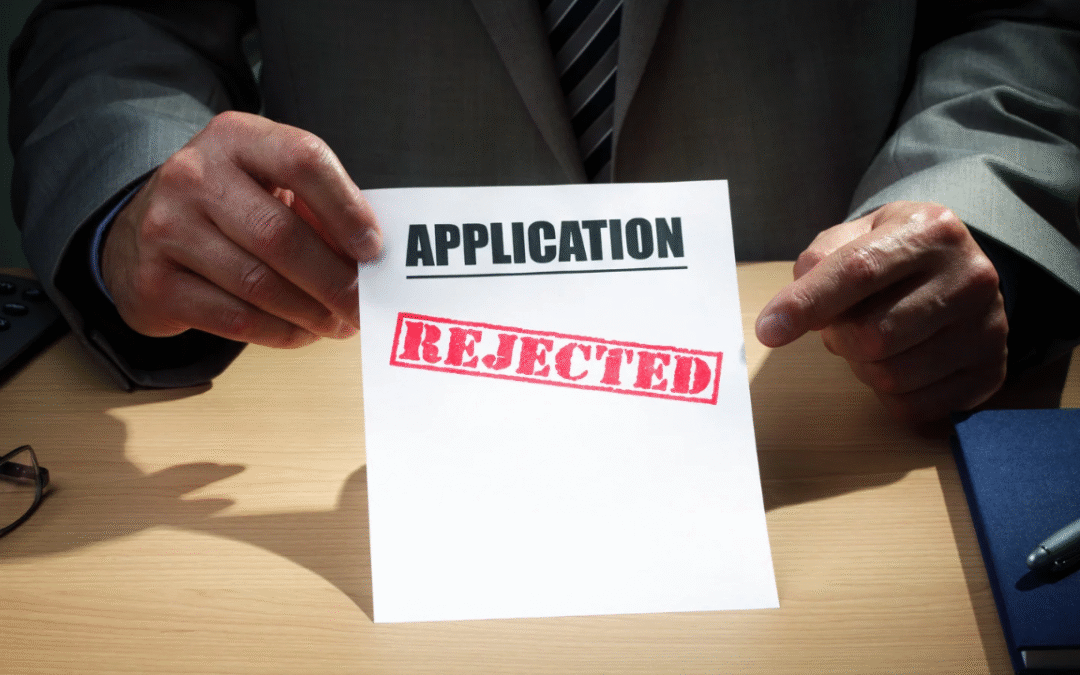If you’ve ever had a visa denied, you may have heard a frightening rumour:
“Once you’re denied, they stamp your passport — and that’s the end of your japa dreams!”
But is it true? Does every visa rejection come with a dreaded “rejection stamp”? And if it does, will it ruin your chances of ever travelling abroad?
Let’s clear the air. In this article, we’ll break down:
- What a visa rejection stamp actually is,
- Whether Nigerian applicants should be worried,
- How it affects future visa applications,
- And what you can do to bounce back from a rejection like a pro.
What Is a Visa Rejection Stamp?
A visa rejection stamp is a mark or annotation placed in your passport by some embassies or consulates when your visa is refused.
But here’s the important part:
Most countries do NOT stamp your passport after a visa refusal.
Instead, they issue a written letter or email notification explaining the reason for denial.
For example:
- The US, UK, Canada, and Schengen countries typically do not place any stamp in your passport when rejecting a visa.
- Some countries may add a code or small note, but it’s usually not something visible or dramatic.
- Very few countries (especially some in Asia or the Middle East) may add a minimal mark or scribble — but not a big red “REJECTED” stamp like many Nigerians fear.
So breathe. If your passport is clean apart from your biodata and travel stamps, you’re still good to go.
Will a Visa Rejection Affect Future Applications?
Now let’s talk about what actually matters: your visa history.
Embassies and consulates do keep internal records of:
- Previous visa applications,
- Any approvals or rejections,
- Reasons for denial,
- And the documents you submitted.
This is why most visa forms ask:
“Have you ever been refused a visa for any country?”
Answering “No” when it’s actually “Yes” is a big red flag — and can lead to bans.
So yes, visa rejections can affect future applications, but not because of a stamp — rather, because of your recorded visa history and how honestly you present it.
Common Reasons for Visa Denials
Most Nigerians who get denied aren’t criminals or fraudsters — they just didn’t meet the requirements. Some common reasons include:
- Weak proof of funds
- Lack of ties to Nigeria (e.g. no job, family, or property)
- Incomplete or inconsistent documents
- Unclear travel purpose
- Poor interview performance
Good news?
These are all fixable. A rejection is not the end. Many people get denied once, prepare better, and succeed the next time.
How to Bounce Back After a Visa Rejection
- Understand Why You Were Rejected
Read the refusal letter carefully — was it financial? Documents? Ties? - Don’t Reapply Immediately
Unless something has changed, you’ll likely be rejected again. Wait until you can fix the problem. - Correct Your Mistakes
Strengthen your proof of funds, gather better supporting documents, and ensure consistency across your paperwork. - Tell the Truth in Your Next Application
If asked whether you’ve been denied before, say yes — and explain how you’ve improved. - Get Professional Help
Working with a trusted travel consultant like Loyalty Travels and Logistics Ltd can make the difference between another rejection and a well-prepared, successful application.
Final Word: No Stamp, No Shame
Visa rejection doesn’t mean you’re banned, and in most cases, your passport remains physically untouched.
The real problem isn’t the stamp — it’s not learning from the mistakes that caused the rejection.
At Loyalty Travels and Logistics Ltd, we help Nigerians:
- Understand embassy expectations,
- Prepare visa-compliant documents,
- Craft strong applications, and
- Increase their chances of approval — even after a previous denial.
Ready to try again — the right way? Let’s help you move smart, not fast.
#VisaRejectionMyths #VisaStampTruth #JapaWisely #LoyaltyTravelsAndLogistics #SecondChanceVisa #TravelWithConfidence #NigeriansAbroad #VisaSupportNigeria

